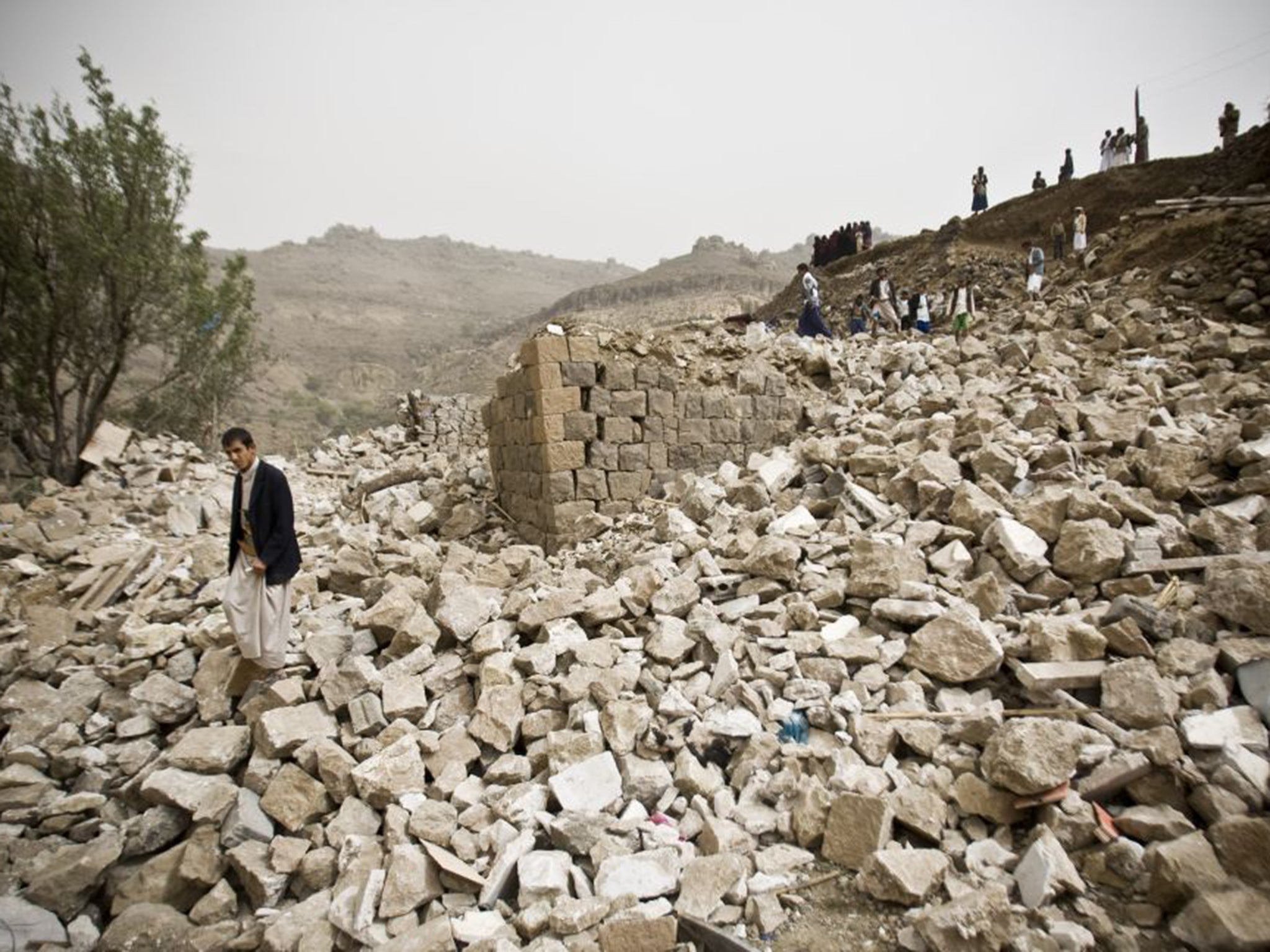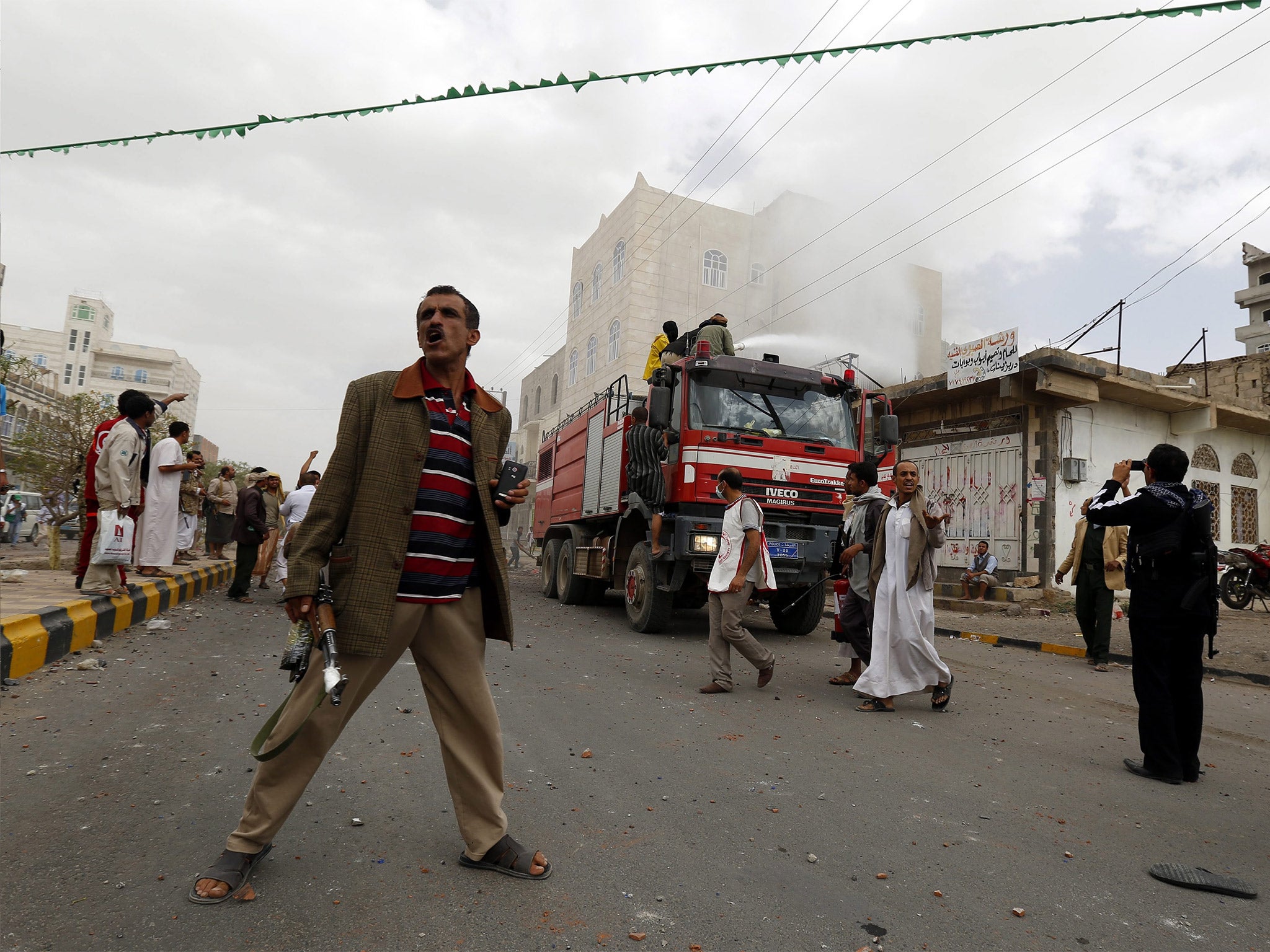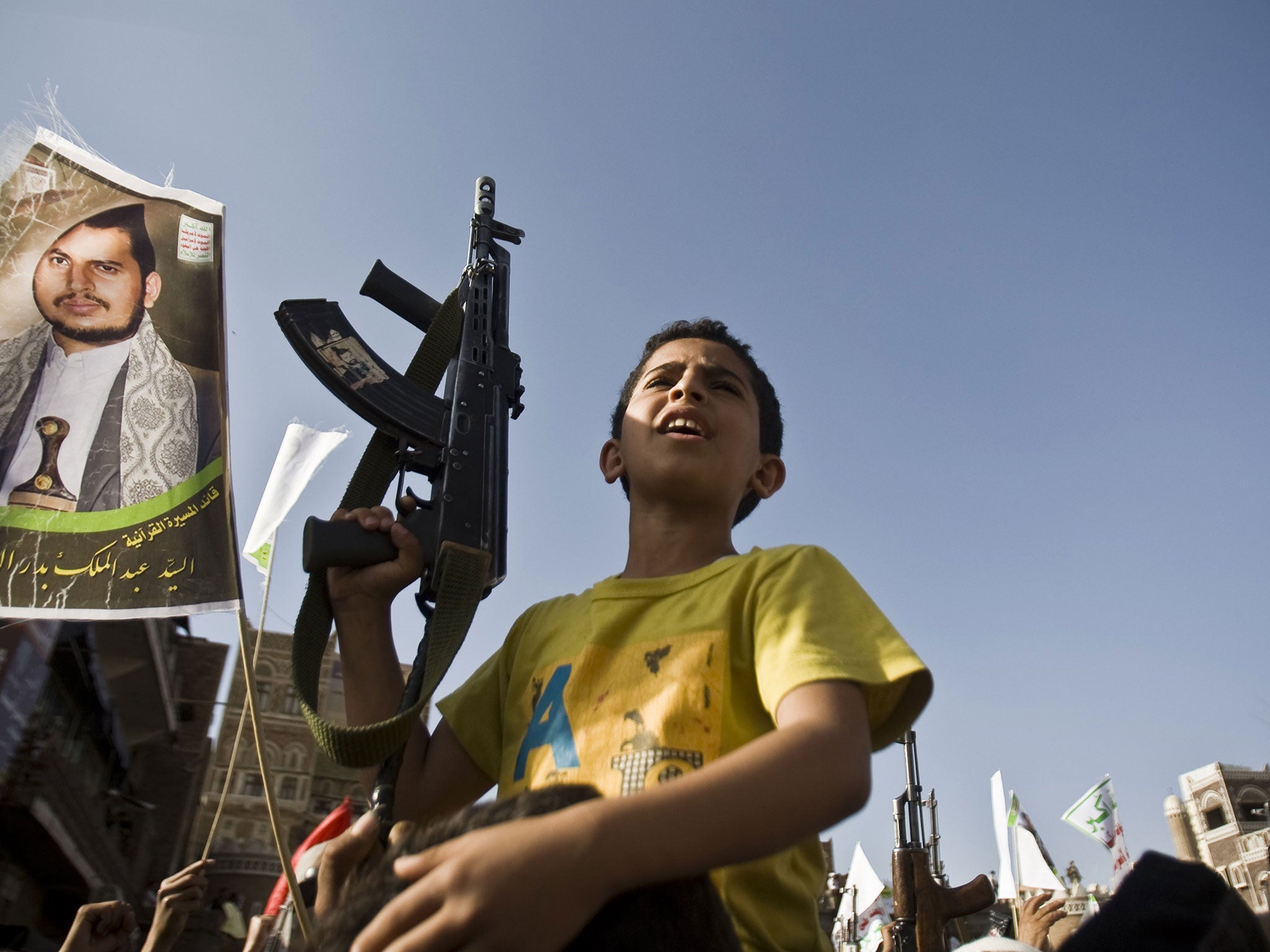Britain and America are helping Saudi Arabia push Yemen towards total collapse
As the humanitarian crisis deepens, the UK has said that it will support the bombing campaign 'in every practical way short of engaging in combat'

Your support helps us to tell the story
From reproductive rights to climate change to Big Tech, The Independent is on the ground when the story is developing. Whether it's investigating the financials of Elon Musk's pro-Trump PAC or producing our latest documentary, 'The A Word', which shines a light on the American women fighting for reproductive rights, we know how important it is to parse out the facts from the messaging.
At such a critical moment in US history, we need reporters on the ground. Your donation allows us to keep sending journalists to speak to both sides of the story.
The Independent is trusted by Americans across the entire political spectrum. And unlike many other quality news outlets, we choose not to lock Americans out of our reporting and analysis with paywalls. We believe quality journalism should be available to everyone, paid for by those who can afford it.
Your support makes all the difference.As Yemen’s political and economic crisis deepens, the United States and Britain have decided to throw their weight behind a Saudi-led coalition of Arab states currently bombing the Houthi rebel group. The rebels, who are backed by Iran and military units loyal to the deposed dictator Ali Abdullah Saleh, have taken over large parts of the country since September.
By providing warplanes and, in the case of the United States, logistical and intelligence support, both countries are playing an important, enabling role in the operation, which in recent weeks has contributed to a sharp escalation of violence in Yemen.
Why should this concern us? Well, for a start, the air campaign is killing large numbers of innocent civilians, and is greatly exacerbating a severe, pre-existing humanitarian crisis.
Secondly, opposition to it is reportedly so “widespread” in Yemen that even opponents of the Houthi rebels have promised to back them against the coalition.
And thirdly, informed observers like Adam Baron and Frederic Wehrey have already warned that the airstrikes could create a vacuum for extremist groups like al-Qai’da in the Arabian Peninsula to take advantage of (something which is apparently already happening).

None of this is to portray the Houthis as innocent victims in all of this, however. Their takeover of the capital Sana’a – effectively resulting in a coup against President Hadi - and subsequent push towards Aden has been deeply polarising and damaging to the country’s slim prospects for a successful democratic transition.
Likewise, the Houthis actions since taking the capital, including the use of torture and extreme violence to suppress dissent, have been brutal and divisive. But two wrongs do not make a right. And Operation Decisive Storm - the name given to the bombing campaign currently underway to displace them - is very clearly wrong.
The most obvious reason for this is the indiscriminate way it is being fought. In one of the worst attacks of the operation so far, airstrikes by the Saudi-led coalition killed at least 29 civilians who were sheltering in a camp for displaced people in the north, burning beyond recognition and tearing apart their bodies in the process. Four children and two women were also burnt to death in a coalition airstrike purportedly targeting a Houthi checkpoint in the governorate of Ibb a day later.
Shocking though they are, reports like these should not come as a surprise. Back in 2009, the Saudi air force killed hundreds, if not thousands, of Yemeni civilians in another misguided bombing campaign against the Houthis. Amnesty International later found that it was “extremely likely” that British-supplied jets were used in the attacks, and called for arms exports to be suspended in response. Sadly, this fell on deaf ears. Today, Saudi Arabia provides the largest market for British-manufactured warplanes and military equipment in the world - arms which may now be helping them to devastate Yemen’s civilian population all over again.
The humanitarian situation is another important, but gravely overlooked factor. Yemen is the poorest country in the Arab world, with 14.7m people in need of aid, 13.1m people without access to safe water and 10.6m people not knowing where their next meal is coming from. Since the bombing began, the crisis has deteriorated, with life-saving aid being blocked – in some cases deliberately by the Saudi-led coalition – and much-needed food imports grinding to a halt.
As the civilian death toll increases, infrastructure is destroyed and tens of thousands of people are forced to flee their homes, the UN High Commissioner for Human Rights has warned that the country is “on the verge of total collapse.”
The West’s role in all of this goes far beyond just public statements of approval for the anti-Houthi campaign. An early statement by the White House confirmed that President Obama has authorised logistical and intelligence support, which officials say includes helping Saudi Arabia to “decide what and where to bomb”. According to the Washington Post, most of the jets used by the Saudi air force are likely to be US-made, as indeed are the warplanes contributed by Kuwait, Bahrain, Jordan and Morocco to the coalition.

Several days in, the US then said that it was also providing additional bombs and aerial refuelling missions for planes carrying out the strikes. This announcement, it should be stressed, came after reports of civilian casualties had begun to surface, including of the killing of six children under the age of ten in a coalition airstrike in Sana’a the day before.
Britain, for its part, has said that it will support the bombing campaign “in every practical way short of engaging in combat”, and has openly acknowledged that British-made jets have been involved. This has led to calls for the British government to investigate whether or not these jets may have been responsible for the killing of civilians, with questions being raised in particular over their possible use in the horrifying attack on a camp for displaced people last week (though, in reality, the use of US-made jets is far more likely).
So what can be done to improve the situation? The short answer is there is no short answer. But steps can be taken, including by the Saudi-led coalition’s Western allies, to reduce the suffering of Yemen’s civilian population and bring the warring parties closer to a resolution.
As the International Crisis Group, an international conflict prevention NGO, explained in a recent briefing, “the slim chance to salvage a political process requires that regional actors immediately cease military action”. The United States and Britain should therefore be doing everything they can to restrain their allies and bring this disastrous operation - which they are both fully complicit in - to an immediate end. If they don’t, it will be the people of Yemen who pay the price.
Join our commenting forum
Join thought-provoking conversations, follow other Independent readers and see their replies
0Comments